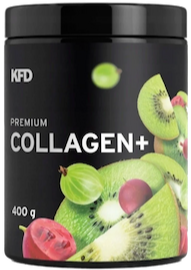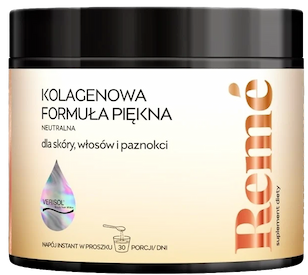Is there pharmaceutical-grade collagen drug that requires a prescription?
Find out if collagen comes in the form of a medicine.


Learn more about our editorial process
.

Learn more about our editorial process
.

Learn more about our editorial process
.

Learn more about our editorial process
.
Why you can trust us
Articles on Natu.Care are written based on scientific research, data from government websites and other reliable sources. The texts are written in cooperation with doctors, nutritionists and other health and beauty experts. Articles are reviewed before publication and during significant updates.
.Learn more about our editorial process
.Information about advertisements
Content on Natu.Care may contain links to products from the sale of which we may receive a commission. When creating content, we adhere to high editorial standards and take care to be objective about the products discussed. The presence of affiliate links is not dictated by our partners, and we select the products we review ourselves completely independently.
.Learn more about our terms and Conditions
.You want to take collagen in its most effective form, and you've heard that if something is going to be effective, it should be a drug. So you are looking for a collagen cure and...
.
Nothing. All the preparations you find are described as a dietary supplement. So why not go to a pharmacy or ask your doctor for some prescription collagen? Don't waste your time on that. I'll explain why below.
From this article you will learn:
.- Whether collagen comes in the form of a drug.
- Whether collagen comes in the form of a drug.
- Which collagen is the most effective. .
- What is the benefit of collagen supplementation.
- What is the benefit of collagen supplementation?
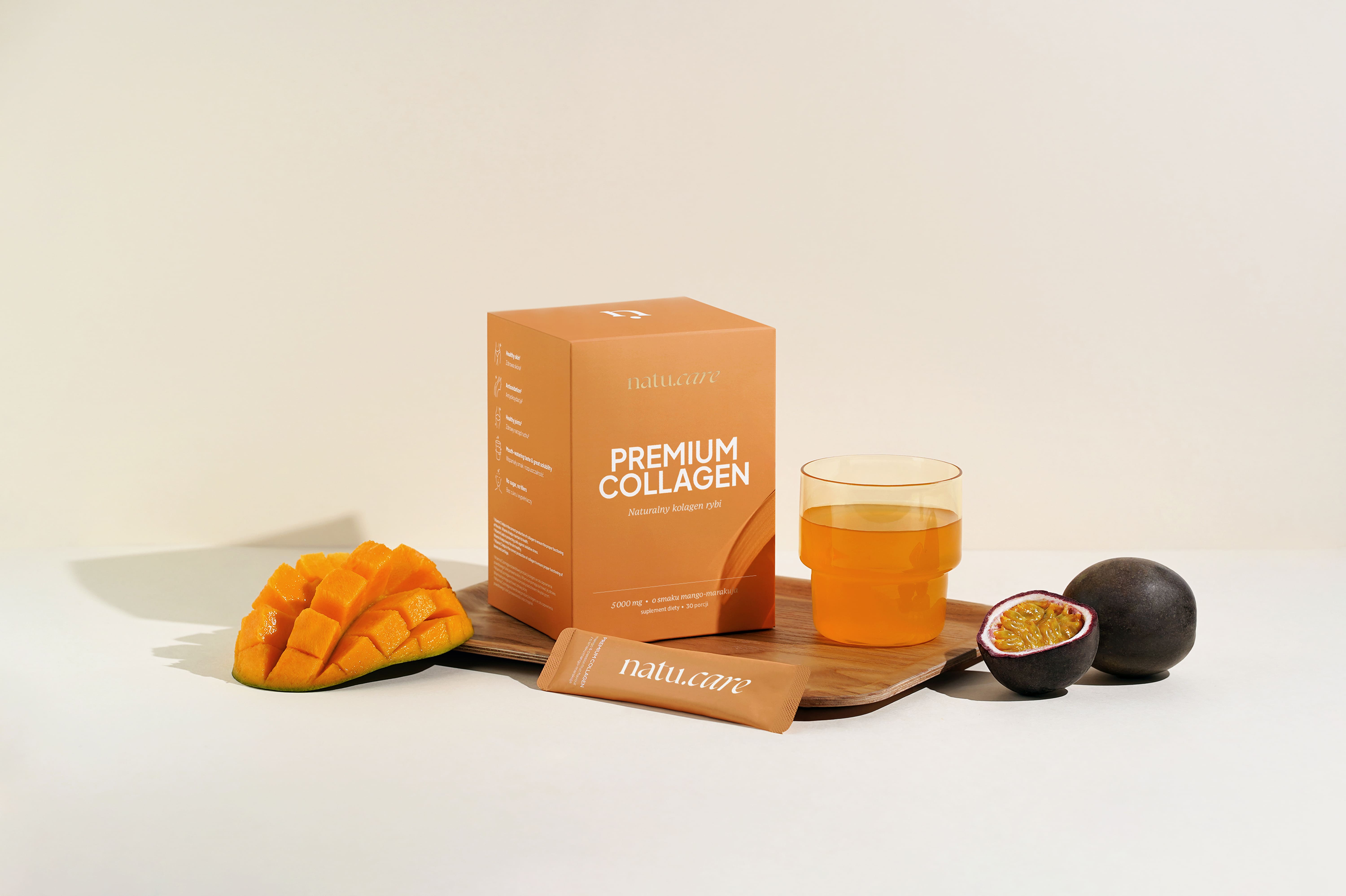
Sprawdź, za co pokochały go tysiące klientek Kolagen Premium 5000 mg, mango-marakuja
Natu.Care Kolagen Premium 5000 mg, mango-marakuja
Natu.Care Kolagen Premium dla zdrowia stawów, skóry, paznokci i włosów. Najlepsza przyswajalność. Optymalna dawka 5 000 lub 10 000 mg. Przebadany przez niezależne laboratorium.
Zobacz więcej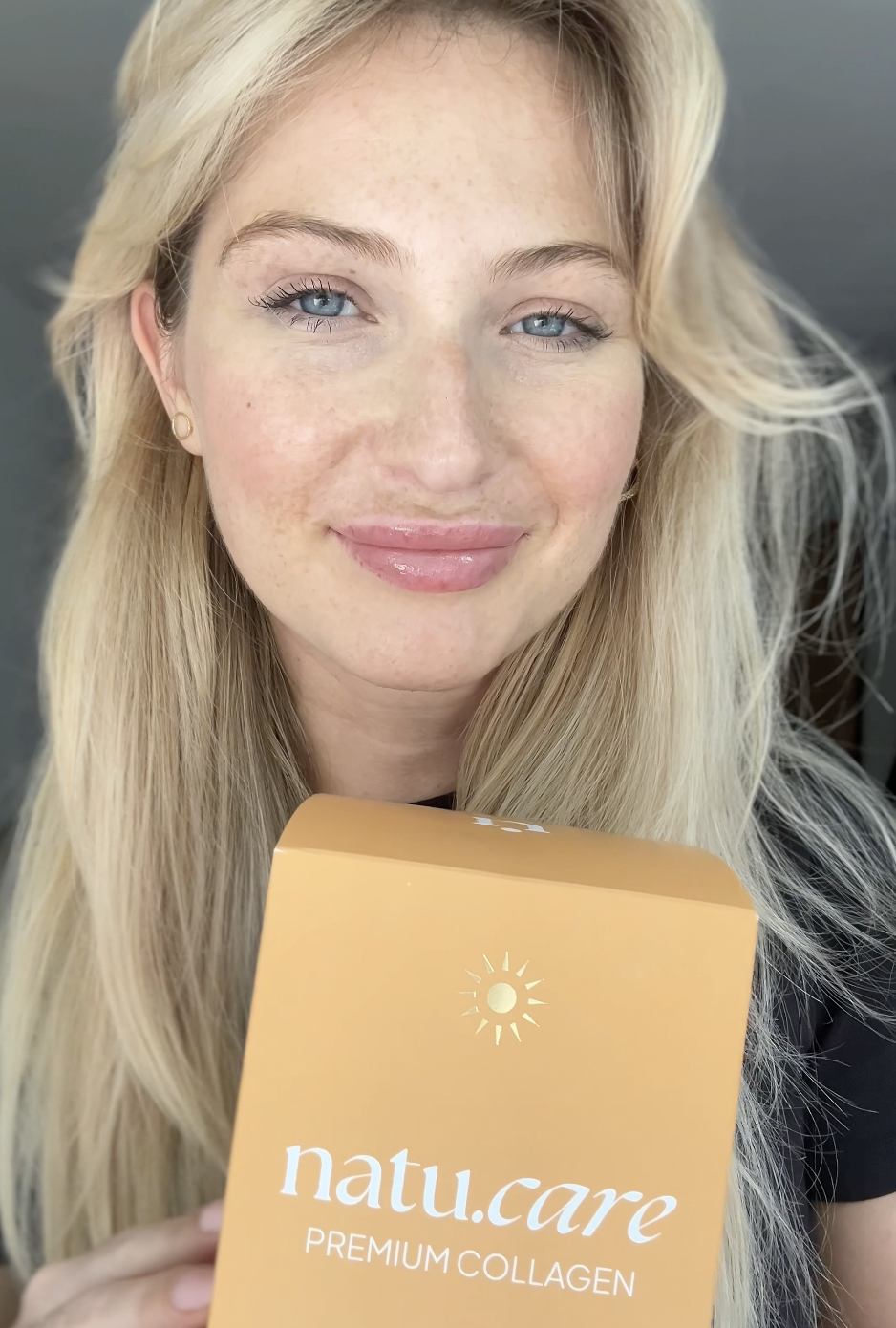
Wybrałam kolagen Natu.Care, ponieważ miał super opinie – a to było dla mnie bardzo ważne! Odkąd go stosuję, moja skóra znacznie się poprawiła i jest nawilżona, a na głowie pojawiły się nowe "baby hair".@Kasia S.
See also:
.
- The most powerful collagen .
- Collagen for tennis elbow .
- Collagen for athletes
- Collagen for joints
- Collagen for bones
- Collagen for tendons
- Collagen for hair
- Facial collagen
- Collagen for wrinkles
- Collagen for skin
- Collagen for stretch marks
- Collagen for cellulite
- Collagen for acne
- Collagen for scars
Which collagen is a medicine and not a supplement?"
.
Want a collagen drug and not a supplement? Unfortunately, there is no oral collagen in drug form on the Polish market. All available collagens are dietary supplements or medical devices. The exceptions are some topical collagen preparations in the form of injections. They can only be administered by a doctor for the treatment of certain musculoskeletal conditions.
What is the difference between a medicine and a dietary supplement?
.
A medicinal product contains substances that treat a disease, serve to diagnose or calm its symptoms. The function of a dietary supplement, on the other hand, is to supplement nutritional deficiencies.
A preparation that is a medicine must be registered with the Office for Registration of Medicinal Products, Medical Devices and Biocidal Products.
.
The drug should also meet strict quantitative and qualitative standards, backed by studies and the relevant authorisation. This process is expensive and lengthy.
For dietary supplements, it is sufficient to notify the Chief Sanitary Inspector of the marketing of the dietary supplement and provide a draft labeland.
.
What is a medical device?
.
Medical devices are a very broad group of products: from bandages, rehabilitation equipment to software for monitoring health parameters (e.g. blood sugar levels). Recently, more and more orally ingested products have been appearing in this category.
A medical device is a product between a drug and a dietary supplement. Although it is much easier to market than a medicine, its properties are supervised by the State Pharmaceutical Inspectorate and the Office for Registration of Medicinal Products, Medical Devices and Biocidal Products. You can recognise a medical device by the CE (Conformité Européenne) mark on the packaging.
Is collagen for joints a medicine?
.
Collagen can help treat joint-related ailments such as joint pain and stiffnessand. However, if we are talking about preparations containing collagen, even those dedicated to joints are not registered as medicines. When you buy collagen for joints, you are buying a dietary supplement or a medical device.
See also:
.
Is collagen an over-the-counter medicine?
The medicines you can buy without a prescription are OTC (over-the-counter drugs). However, they are still preparations that are registered as medicinal products and must meet strict legal requirements.
Collagen supplements, although you can buy them without a prescription, are not OTC medicines. They are food products. However, this does not mean that collagen supplements do not work. Taking them can help you:
- .
- reduce the appearance of wrinkles, .
- improve the condition of your hair, .
- strengthen nails, .
- reduce joint stiffness and pain, .
- provide better recovery after training, .
Best collagen on the market - ranking
.
There are dietary supplements on the market prepared with the utmost care and attention to composition and active ingredients. See what we used to guide us in selecting the most powerful collagens:
Criteria:
- Dose of collagen - too low a dose will be ineffective, aim for 2.5-15 grams, .
- Information about its form - in this list you will only find hydrolysates of collagen, the form that is best absorbed into the body, .
- Source of collagen - whether the product comes from fish, poultry, cows or other animals, .
- Purity and simplicity of composition - no unnecessary fillers or notations that are hard to decipher, .
- Taste - it's easier to supplement with a specification that is tasty, simple. Here you can see the full criteria. .
Our ranking winner for the best collagen on the market can only be one: Natu.Care Premium Collagen. It has a high dose, excellent absorption and the best collagen in the form of hydrolysate, derived from the skin of deep-sea cod - a fish that inhabits the cleanest waters in Europe.
Natu.Care Collagen Premium 5000 mg, mango-maracuja

- Collagen content: 5000 mg marine collagen hydrolysate
- .
- Additional active ingredients: vitamin C, low molecular weight hyaluronic acid (and L-theanine and coenzyme Q10 in cocoa flavoured collagen or vitamin A and vitamin E in mango–passion fruit flavoured collagen)
- .
- Form: powder sachets
- .
- Dose: 1 sachet per day
- .
- Sufficient for: 30 days
- .
Product description
Fish collagen from the Natu.Care brand in a dose of 5000 mg. The formula contains a sufficient portion of the active substance to positively affect your joints, musculoskeletal system and immunity.
Take care of your tendons, joint cartilage, ligaments, muscles and even bones by supplying them with the building blocks to function properly. Move without bólu and provide the necessary support for any physical activity.
And as a „gratis” to regular supplementation, you will also receive firm skinóhand, healthy and shiny hair and strong nails.
Natu.Care Premium Collagen is available in two flavours – Cacao Bloom and Rise&Shine. Both formulas are based on the following active ingredients: marine collagen hydrolysate, wild roseóbud extract and hyaluronic acid.
Additionally, Cacao Bloom contains natural L-theanine, coenzyme Q10 and defatted Dutch cacao. Rise&Shine instead contains vitamin E and vitamin A.
These are the best collagens in the world.
These best fish collagens on the market also rós taste – Cacao Bloom is a treat for chocolate lovers. Rise&Shine will appeal to those whoóenjoy the refreshing taste of mangoófruit and passion fruit.
Pros and cons
Fish collagen from the Natu.Care brand in a dose of 5000 mg. The formula contains a sufficient portion of the active substance to positively affect your joints, musculoskeletal system and immunity.
Take care of your tendons, joint cartilage, ligaments, muscles and even bones by supplying them with the building blocks to function properly. Move without bólu and provide the necessary support for any physical activity.
And as a „gratis” to regular supplementation, you will also receive firm skinóhand, healthy and shiny hair and strong nails.
Natu.Care Premium Collagen is available in two flavours – Cacao Bloom and Rise&Shine. Both formulas are based on the following active ingredients: marine collagen hydrolysate, wild roseóbud extract and hyaluronic acid.
Additionally, Cacao Bloom contains natural L-theanine, coenzyme Q10 and defatted Dutch cacao. Rise&Shine instead contains vitamin E and vitamin A.
These are the best collagens in the world.
These best fish collagens on the market also rós taste – Cacao Bloom is a treat for chocolate lovers. Rise&Shine will appeal to those whoóenjoy the refreshing taste of mangoófruit and passion fruit.
Additional information
Fish collagen from the Natu.Care brand in a dose of 5000 mg. The formula contains a sufficient portion of the active substance to positively affect your joints, musculoskeletal system and immunity.
Take care of your tendons, joint cartilage, ligaments, muscles and even bones by supplying them with the building blocks to function properly. Move without bólu and provide the necessary support for any physical activity.
And as a „gratis” to regular supplementation, you will also receive firm skinóhand, healthy and shiny hair and strong nails.
Natu.Care Premium Collagen is available in two flavours – Cacao Bloom and Rise&Shine. Both formulas are based on the following active ingredients: marine collagen hydrolysate, wild roseóbud extract and hyaluronic acid.
Additionally, Cacao Bloom contains natural L-theanine, coenzyme Q10 and defatted Dutch cacao. Rise&Shine instead contains vitamin E and vitamin A.
These are the best collagens in the world.
These best fish collagens on the market also rós taste – Cacao Bloom is a treat for chocolate lovers. Rise&Shine will appeal to those whoóenjoy the refreshing taste of mangoófruit and passion fruit.
User review
Fish collagen from the Natu.Care brand in a dose of 5000 mg. The formula contains a sufficient portion of the active substance to positively affect your joints, musculoskeletal system and immunity.
Take care of your tendons, joint cartilage, ligaments, muscles and even bones by supplying them with the building blocks to function properly. Move without bólu and provide the necessary support for any physical activity.
And as a „gratis” to regular supplementation, you will also receive firm skinóhand, healthy and shiny hair and strong nails.
Natu.Care Premium Collagen is available in two flavours – Cacao Bloom and Rise&Shine. Both formulas are based on the following active ingredients: marine collagen hydrolysate, wild roseóbud extract and hyaluronic acid.
Additionally, Cacao Bloom contains natural L-theanine, coenzyme Q10 and defatted Dutch cacao. Rise&Shine instead contains vitamin E and vitamin A.
These are the best collagens in the world.
These best fish collagens on the market also rós taste – Cacao Bloom is a treat for chocolate lovers. Rise&Shine will appeal to those whoóenjoy the refreshing taste of mangoófruit and passion fruit.
Natu.Care Collagen Premium 10000 mg, cherry

- Collagen content: 10,000 mg of hydrolyzed bovine collagen
- Additional active ingredients: vitamin C, low molecular weight hyaluronic acid, glucosamine, chondroitin, extract of Indian frankincense resin (boswellia serrata)
- Form: powder sachets for drinking
- Serving: 1 sachet per day
- Lasts for: 30 days
Product description
One of the strongest collagens on the market, providing as much as 10,000 mg per daily serving. This product can effectively support the condition of joints, skin, hair, and nails.
With this supplement, you will support your skeletal and joint system as well as your beauty, helping you visually halt the aging process and feel rejuvenated!
Pros and cons
Pros:
- The daily portion of collagen is very large – as much as 10,000 mg.
- Proven collagen formula – COLLinstant, whose effectiveness has been confirmed in clinical studies.
- Effective dose of hyaluronic acid, which additionally moisturizes the skin and positively affects joint health.
- Vitamin C supports the body's natural collagen production.
- Glucosamine is a fundamental building block of compounds found in joint cartilage and a component of collagen that gives elasticity to connective tissue in tendons.
- Chondroitin is a natural component found in the human body, mainly in cartilage. This large molecule (mucopolysaccharide) has the ability to absorb water, which helps maintain the elasticity and resilience of cartilage.
- Frankincense resin extract supports blood circulation and joint mobility and reduces their stiffness. It may help alleviate inflammatory conditions.
- The composition has been tested by the independent and accredited J.S. Hamilton laboratory.
Cons:
- None.
Additional information
Users praise Natu.Care Collagen Premium for the easy dissolving of the powder.
ALLDEYNN Collarose Fish
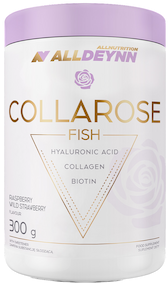
- Collagen content: 5000 mg hydrolysate fish collagen VERISOL F® .
- Additional active ingredients: vitamin C, hyaluronic acid, biotin
- Form: powder to dissolve in water .
- Dose: one scoop (6 g) of powder daily .
- Sufficient for: 50 days .
Product description
Atlantic cod collagen VERISOL F® contained in the formula are easily absorbed collagen peptides of fish origin. Regular supplementation can firm your skinóhand and slow down the ageing process. Your nails will become stronger and stop breaking. The addition of biotin will improve the condition of your hairów. The collagen portion is high enough to also have a good effect on your joints, muscles and bones.
Pros and cons
Atlantic cod collagen VERISOL F® contained in the formula are easily absorbed collagen peptides of fish origin. Regular supplementation can firm your skinóhand and slow down the ageing process. Your nails will become stronger and stop breaking. The addition of biotin will improve the condition of your hairów. The collagen portion is high enough to also have a good effect on your joints, muscles and bones.
Additional information
Atlantic cod collagen VERISOL F® contained in the formula are easily absorbed collagen peptides of fish origin. Regular supplementation can firm your skinóhand and slow down the ageing process. Your nails will become stronger and stop breaking. The addition of biotin will improve the condition of your hairów. The collagen portion is high enough to also have a good effect on your joints, muscles and bones.
Expert and user opinion
Atlantic cod collagen VERISOL F® contained in the formula are easily absorbed collagen peptides of fish origin. Regular supplementation can firm your skinóhand and slow down the ageing process. Your nails will become stronger and stop breaking. The addition of biotin will improve the condition of your hairów. The collagen portion is high enough to also have a good effect on your joints, muscles and bones.
DuoLife Collagen fish collagen 2500 mg
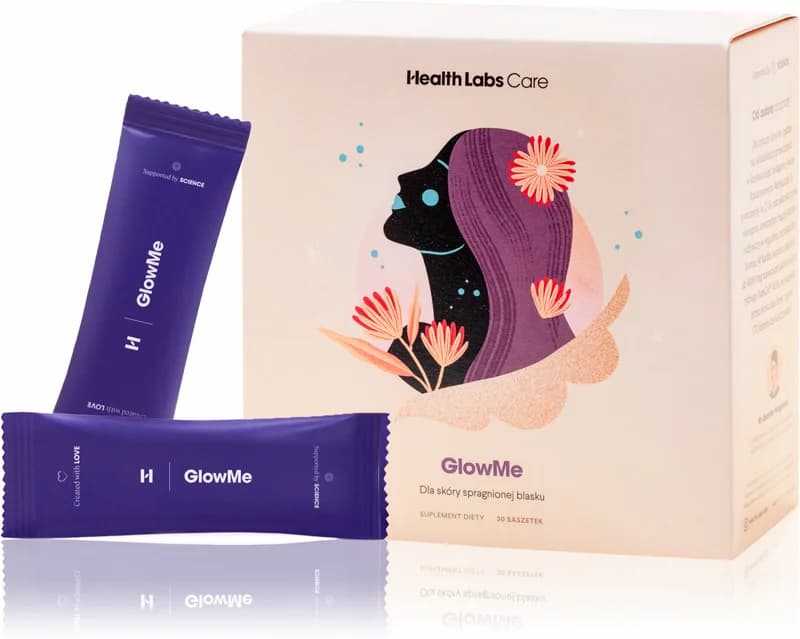
- Collagen content: 2500 mg collagen
- Additional active ingredients: vitamin C, silicon, glucosamine, hyaluronic acid, nettle and bamboo extracts
- Form: liquid to drink .
- Dose:25 ml .
- Sufficient for: 30 days .
Product description
100% natural collagen liquid without unnecessary ingredientsós. The composition of ingredientsós improves the appearance and condition of skinóry, hairów, nails. DuoLife is a good choiceór if you notice the first signs of skinóry ageing or want to stop this process. A tasty liquid, convenient to use.
Pros and cons
100% natural collagen liquid without unnecessary ingredientsós. The composition of ingredientsós improves the appearance and condition of skinóry, hairów, nails. DuoLife is a good choiceór if you notice the first signs of skinóry ageing or want to stop this process. A tasty liquid, convenient to use.
Additional information
100% natural collagen liquid without unnecessary ingredientsós. The composition of ingredientsós improves the appearance and condition of skinóry, hairów, nails. DuoLife is a good choiceór if you notice the first signs of skinóry ageing or want to stop this process. A tasty liquid, convenient to use.
User review
100% natural collagen liquid without unnecessary ingredientsós. The composition of ingredientsós improves the appearance and condition of skinóry, hairów, nails. DuoLife is a good choiceór if you notice the first signs of skinóry ageing or want to stop this process. A tasty liquid, convenient to use.
Pharmovit liquid collagen 10000 mg
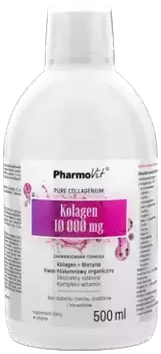
- Collagen content: 10000 mg hydrolysed bovine collagen types I and III .
- Additional active ingredients: hyaluronic acid, natural plant extracts, vitamin C, B vitamins, zinc, vitamin D
- Form: vials .
- Dose: 25 ml .
- Sufficient for: 20 days .
Product description
A solid daily dose of collagen for jointómuscle and bone health and beauty. The duo of collagen and vitamin C has a positive effect on each other, so that „the protein of youth” is better absorbed and more efficiently produced in the body.
Pros and cons
A solid daily dose of collagen for jointómuscle and bone health and beauty. The duo of collagen and vitamin C has a positive effect on each other, so that „the protein of youth” is better absorbed and more efficiently produced in the body.
Additional information
A solid daily dose of collagen for jointómuscle and bone health and beauty. The duo of collagen and vitamin C has a positive effect on each other, so that „the protein of youth” is better absorbed and more efficiently produced in the body.
KFD Premium Collagen+
Product description
High dose of collagen and a real bomb of vitamins C and D and organic sulphur. With this preparation the effects will come immediately. You will improve the firmness of your skin and reduce wrinkles. Your hair and nails will be strong and shiny.
A generous dose of collagen will improve the mobility of your jointsós, benefit your bone system and muscles. Do you do sports and need a product thatós able to keep up with your needs? This product will do the trick.
Pros and cons
High dose of collagen and a real bomb of vitamins C and D and organic sulphur. With this preparation the effects will come immediately. You will improve the firmness of your skin and reduce wrinkles. Your hair and nails will be strong and shiny.
A generous dose of collagen will improve the mobility of your jointsós, benefit your bone system and muscles. Do you do sports and need a product thatós able to keep up with your needs? This product will do the trick.
Additional information
High dose of collagen and a real bomb of vitamins C and D and organic sulphur. With this preparation the effects will come immediately. You will improve the firmness of your skin and reduce wrinkles. Your hair and nails will be strong and shiny.
A generous dose of collagen will improve the mobility of your jointsós, benefit your bone system and muscles. Do you do sports and need a product thatós able to keep up with your needs? This product will do the trick.
Expert opinion
High dose of collagen and a real bomb of vitamins C and D and organic sulphur. With this preparation the effects will come immediately. You will improve the firmness of your skin and reduce wrinkles. Your hair and nails will be strong and shiny.
A generous dose of collagen will improve the mobility of your jointsós, benefit your bone system and muscles. Do you do sports and need a product thatós able to keep up with your needs? This product will do the trick.
Product description
The dietary supplement from Remé contains beef collagen in a patented formula and vitamin C, whichóra aids its absorption. The formula comes in three flavours: neutral, orange-maracuja and strawberry-pomegranate. The formula can effectively support and improve the condition of the skinóry, hairóry and nails.
Pros and cons
The dietary supplement from Remé contains beef collagen in a patented formula and vitamin C, whichóra aids its absorption. The formula comes in three flavours: neutral, orange-maracuja and strawberry-pomegranate. The formula can effectively support and improve the condition of the skinóry, hairóry and nails.
Additional information
The dietary supplement from Remé contains beef collagen in a patented formula and vitamin C, whichóra aids its absorption. The formula comes in three flavours: neutral, orange-maracuja and strawberry-pomegranate. The formula can effectively support and improve the condition of the skinóry, hairóry and nails.
The dietary supplement from Remé contains beef collagen in a patented formula and vitamin C, whichóra aids its absorption. The formula comes in three flavours: neutral, orange-maracuja and strawberry-pomegranate. The formula can effectively support and improve the condition of the skinóry, hairóry and nails.
{ product:62TB3Vs77HvOiYZFrfGmQq }}
{ product:fyjLpBuQHhzwzRvwxSI3V }}
{ product:6o8TOnyyitk7QtmE6Emgrn }}
See also:
.
- Drinking collagen
- Collagen powder
- Collagen in sachets
- Drinkable collagen
- Collagen in tablets
- Collagen in capsules
- Which collagen to choose
Collagen types
.
Collagen can be divided according to its type and source of origin.
Types of collagen
.
The compounds that we classify as collagens (collagen proteins) differ in structure. Each contains slightly different amino acids and, depending on this, is classified as a specific type of collagenand. There are as many as 28 types in our body , but the key ones are:
- Collagen type 1 - is the most common type of collagen in the human body and makes up about 90% of the collagen in skin, bones, tendons and ligaments. It is an essential component of the skin's extracellular matrix, or its building blockand.
- Collagen type 2 - is the main component of joint cartilage and is responsible for its mechanical properties .
- Collagen type 3 - is found in the skin, blood vessels and internal organs . .
Sources of collagen
.
Collagen is a zoonotic product and is not found in plants. For dietary supplements, it is most commonly extracted from fish and other sea creatures (sea collagen) or from chickens, cows and pigsand.
.
Fish-derived collagen is most similar in structure to that found in the human bodyand. This is why fish collagen (English) marine collagen) is considered the best absorbed.
See also:
.
Properties of collagen
.
Collagen is an essential component of connective tissue, as well as skin, bones, tendons, ligaments, cartilage and blood vesselsand. It could be said to be their main building block.
When the amount of collagen protein decreases in the body (and this happens after the age of 25), the skin and tissues start to sag and collapse. Instead, joint surfaces lose the lubrication and glide necessary for proper function. These are the most common symptoms of collagen deficiency.
A dietary supplement should not replace proper diet and eating habits. Unfortunately, for various reasons, it is not always possible to provide all the necessary ingredients. Then it is worth considering individually tailored supplementation..
Malgorzata Bekierpharmacist
Interesting facts
Collagen as a medical device is also available as a delivery or subcutaneous injection. Collagen in this form must be administered by a doctor.
It is worth knowing that type 1 and type 2 collagens are sensitive to the presence vitamin C, which stimulates their synthesis and secretion. This is why the best supplements with collagen contain added vitamin C.
What does collagen help with?
.
Collagen helps with joint problems. It removes their stiffness and aids their regeneration. Delays the ageing process by filling the skin from within (with oral supplementation). Benefits bone health and the cardiovascular system. It also helps to maintain shiny hair and strong nails.
See also:
Effects of collagen supplementation
.
By taking collagen supplements, you will ensure a visible improvement in the appearance of your skin. You will prevent the formation of wrinkles and noticeably reduce the appearance of those that have already appeared. By working naturally from within, your skin will become firm and smoothand.
.
Collagen can help you fight joint pain. As well as making sure that cartilage is filled and elastic, it is also involved in the production of joint lubricant. It prevents the joint surfaces from rubbing against each otherand. This will increase the fluidity of your movements and the unpleasant jarring in your knees will cease.
Collagen is the basic component of the connective tissue of which our skin is made up. Its proper nutrition and condition also affects epidermal creations such as hair and nails. By supplementing collagen, you prevent thinning of your hair and keep it soft and shiny. You also improve the elasticity of the nail plate and prevent it from breaking and splitting.
.
See also:
.
- Effects of drinking collagen .
- What collagen helps
- The best-absorbed collagen
- Best supplements for hair
- Best vitamins for nails
Contraindications to taking collagen
.
Collagen is the natural building block of your body. It has been thoroughly researched and found to be safe. Despite this, there are contraindications to the use of collagenand. These are:
- .
- allergies to products from which collagen is derived, .
- gastrointestinal problems, .
- diseases of the liver and kidneys, .
- autoimmune diseases, .
- taking certain medications, .
Collagen supplementation should also not be used by pregnant and lactating womenand.
If you are in any doubt about whether you can take collagen, consult your doctor or pharmacist.
.

Sprawdź, za co pokochały go tysiące klientek Kolagen Premium 5000 mg, mango-marakuja
Natu.Care Kolagen Premium 5000 mg, mango-marakuja
Natu.Care Kolagen Premium dla zdrowia stawów, skóry, paznokci i włosów. Najlepsza przyswajalność. Optymalna dawka 5 000 lub 10 000 mg. Przebadany przez niezależne laboratorium.
Zobacz więcej
Wybrałam kolagen Natu.Care, ponieważ miał super opinie – a to było dla mnie bardzo ważne! Odkąd go stosuję, moja skóra znacznie się poprawiła i jest nawilżona, a na głowie pojawiły się nowe "baby hair".@Kasia S.
See also:
.
- How to replenish collagen in the body? .
- What destroys collagen in the body? .
- When is the best time to take collagen?
- What are the symptoms of collagen deficiency? .
- Is it possible to rebuild collagen in the body?
- Collagen for horses...for humans? Doctor's opinion
Summary
.
- There is no collagen registered as a medicine on the Polish market. All preparations are dietary supplements or medical devices. .
- When choosing a product for yourself, pay attention to the dose of collagen in a daily serving, its form and the source from which it is extracted.
- The most important types of collagen are the following.
- The most important types of collagen for our bodies are types 1, 2 and 3. .
- Fish collagen in the form of hydrolysate is best absorbed. .
- Collagen supports joint function, skin appearance and has a positive effect on the circulatory system. .
FAQ
.Which collagen medicine is best?
.There is no collagen under the form of a medicine, i.e. a registered medicinal product with the appropriate authorisation. All collagen preparations are dietary supplements.
The best choices are those containing 5,000-10,000 mg collagen hydrolysate, sourced from marine sources. Such products are best absorbed and give the best supplementation.
Which collagen is the healthiest?
.Which collagen turns out to be the healthiest for you depends on the effects you want to achieve. If you are looking to support your joints, look for products containing 1 and 2 types of collagen. If you want to improve the condition of your skin, choose type 1. Invest in products with collagen hydrolysate, as this is the best absorbed form.
Which collagen is the best absorbed?
.According to research, the best absorbed for the human body is fish collagen in hydrolysate form. Collagen of marine origin has a similar structure to that found in our body.
Through the process of hydrolysis, the large collagen molecules are broken down into smaller - collagen peptides, therefore collagen hydrolysate is better absorbed into the body.
Do dietary supplements work?
.Dietary supplements work and can have different effects on health, depending on their composition and dosage. Supplementation can be beneficial to our bodies in case of deficiencies vitamins and minerals. However, it is important not to exceed the maximum daily servings of active ingredients and not to replace a properly balanced diet with supplements.
Is collagen over-the-counter?
.Yes, preparations with collagen can be purchased without a prescription as they are dietary supplements. A prescription is only needed to purchase some products registered as medicines.
Does collagen exist as a medicine?
.No, collagens available on the Polish market do not exist as a medicinal product. All collagen preparations are dietary supplements, i.e. food products - according to the Act on Health Conditions of Food and Nutrition.
.What are the benefits of taking collagen?
.Taking collagen can help you improve the function of your joints: reducing their stiffness and improving their mobility. It will also benefit the appearance of skin: shallowen wrinkles and prevent the formation of new ones. It will restore firmness and a radiant complexion. Collagen also has a positive effect on the circulatory system, muscles and bones.
.
Sources
.See all
.Bojarowicz, H., & Dźwigulska, P. (2012). Dietary supplements. Part I. Dietary supplements versus drugs - comparison of legal requirements. http://www.h-ph.pl/pdf/hyg-2012/hyg-2012-4-427.pdf
Collagen Type 2-An overview | ScienceDirect Topics. (n.d.). Retrieved March 22, 2023, from https://www.sciencedirect.com/topics/medicine-and-dentistry/collagen-type-2
Collagen Type 3-An overview | ScienceDirect Topics. (n.d.). Retrieved February 23, 2023, from https://www.sciencedirect.com/topics/medicine-and-dentistry/collagen-type-3
Davidson, J. M., LuValle, P. A., Zoia, O., Quaglino, D., & Giro, M. (1997). Ascorbate Differentially Regulates Elastin and Collagen Biosynthesis in Vascular Smooth Muscle Cells and Skin Fibroblasts by Pretranslational Mechanisms *. Journal of Biological Chemistry, 272(1), 345-352. https://doi.org/10.1074/jbc.272.1.345
de Miranda, R. B., Weimer, P., & Rossi, R. C.. (2021). Effects of hydrolyzed collagen supplementation on skin aging: A systematic review and meta-analysis. International Journal of Dermatology, 60(12), 1449-1461. https://doi.org/10.1111/ijd.15518
Evans, M., Lewis, E. D., Zakaria, N., Pelipyagina, T., & Guthrie, N. (2020). A randomised, triple-blind, placebo-controlled, parallel study to evaluate the efficacy of a freshwater marine collagen on skin wrinkles and elasticity. Journal of Cosmetic Dermatology, 20(3). https://doi.org/10.1111/jocd.13676
Itakura, H., Kishi, S., Kotajima, N., & Murakami, M. (2009). Decreased Vitreal Hyaluronan Levels with Aging. Ophthalmologica, 223(1), 32-35. https://doi.org/10.1159/000165682
Jokinen, J., Dadu, E., Nykvist, P., Käpylä, J., White, D. J., Ivaska, J., Vehviläinen, P., Reunanen, H., Larjava, H., Häkkinen, L., & Heino, J. (2004). Integrin-mediated Cell Adhesion to Type I Collagen Fibrils *. Journal of Biological Chemistry, 279(30), 31956-31963. https://doi.org/10.1074/jbc.M401409200
Kim, D. U., Chung, H. C., Choi, J., Sakai, Y., & Lee, B. Y. (2018). Oral Intake of Low-Molecular-Weight Collagen Peptide Improves Hydration, Elasticity, and Wrinkling in Human Skin: A Randomized, Double-Blind, Placebo-Controlled Study. Nutrients, 10(7). https://doi.org/10.3390/nu10070826
Lu, Z., Doulabi, B. Z., Huang, C., Bank, R. A., & Helder, M. N. (2010). Collagen Type II Enhances Chondrogenesis in Adipose Tissue-Derived Stem Cells by Affecting Cell Shape. Tissue Engineering Part A, 16(1), 81-90. https://doi.org/10.1089/ten.tea.2009.0222
Naomi, R., Ridzuan, P. M., & Bahari, H. (2021). Current Insights into Collagen Type I. Polymers, 13(16), 2642. https://doi.org/10.3390/polym13162642
San Antonio, J. D., Jacenko, O., Fertala, A., & Orgel, J. P. R. O. (2021). Collagen Structure-Function Mapping Informs Applications for Regenerative Medicine. Bioengineering, 8(1), Article 1. https://doi.org/10.3390/bioengineering8010003
.Schauss, A. G., Stenehjem, J., Park, J., Endres, J. R., & Clewell, A. (2012). Effect of the novel low molecular weight hydrolyzed chicken sternal cartilage extract, BioCell Collagen, on improving osteoarthritis-related symptoms: A randomized, double-blind, placebo-controlled trial. Journal of Agricultural and Food Chemistry, 60(16), 4096-4101. https://doi.org/10.1021/jf205295u
Shaw, G., Lee-Barthel, A., Ross, M. L., Wang, B., & Baar, K. (2017). Vitamin C-enriched gelatin supplementation before intermittent activity augments collagen synthesis12. The American Journal of Clinical Nutrition, 105(1), 136-143. https://doi.org/10.3945/ajcn.116.138594
Official List of Medicinal Products | Public Information Bulletin. (n.d.). Retrieved June 6, 2023, from https://bip.urpl.gov.pl/pl/biuletyny-i-wykazy/urz%C4%99dowy-wykaz-produkt%C3%B3w-leczniczych
Act of 6 September 2001. Pharmaceutical Law. (n.d.). Downloaded 6 June 2023, from https://isap.sejm.gov.pl/isap.nsf/DocDetails.xsp?id=wdu20011261381
Act of 11 May 2001. On health conditions of food and nutrition. (n.d.). Downloaded 6 June 2023, from https://isap.sejm.gov.pl/isap.nsf/DocDetails.xsp?id=WDU20010630634
Varani, J., Dame, M. K., Rittie, L., Fligiel, S. E. G., Kang, S., Fisher, G. J., & Voorhees, J. J. (2006). Decreased Collagen Production in Chronologically Aged Skin. The American Journal of Pathology, 168(6), 1861-1868. https://doi.org/10.2353/ajpath.2006.051302
Wu, M., Cronin, K., & Crane, J. S. (2023). Biochemistry, Collagen Synthesis. In StatPearls. StatPearls Publishing. http://www.ncbi.nlm.nih.gov/books/NBK507709/
Yagoda MD, M. R., & Gans PhD, E. H. (2012). A Nutritional Supplement Formulated with Peptides, Lipids, Collagen and Hyaluronic Acid Optimizes Key Aspects of Physical Appearance in Nails, Hair and Skin. Journal of Nutrition & Food Sciences, s5. https://doi.org/10.4172/2155-9600.S5-002
Jelonek, L. (2023). Collagen. Everything you need to know (B. Turczynski, ed.; 1st ed.). Natu.Care. https://books.google.com/books?vid=9788396887801
..
Editorials
Meet the team

Master of Pharmacy
She graduated in 2021 in pharmacy from the Medical University of Poznan and is currently in the process of completing her PhD combining pharmacy and diabetology. She educates online about insulin resistance, pre-diabetes, treatment of diabetes of all types and prevention. She encourages (if possible) prevention rather than cure.

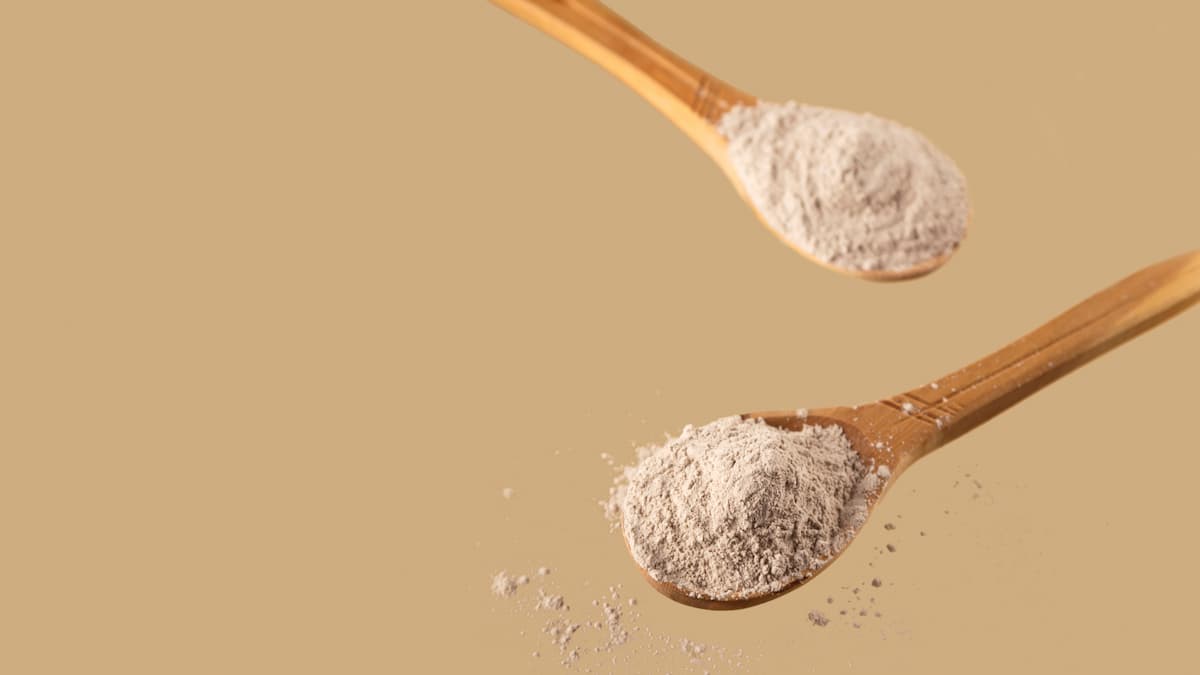
Everything you want to know about COLLinstant collagen.

Collibre collagen is an interesting supplement in shot form.
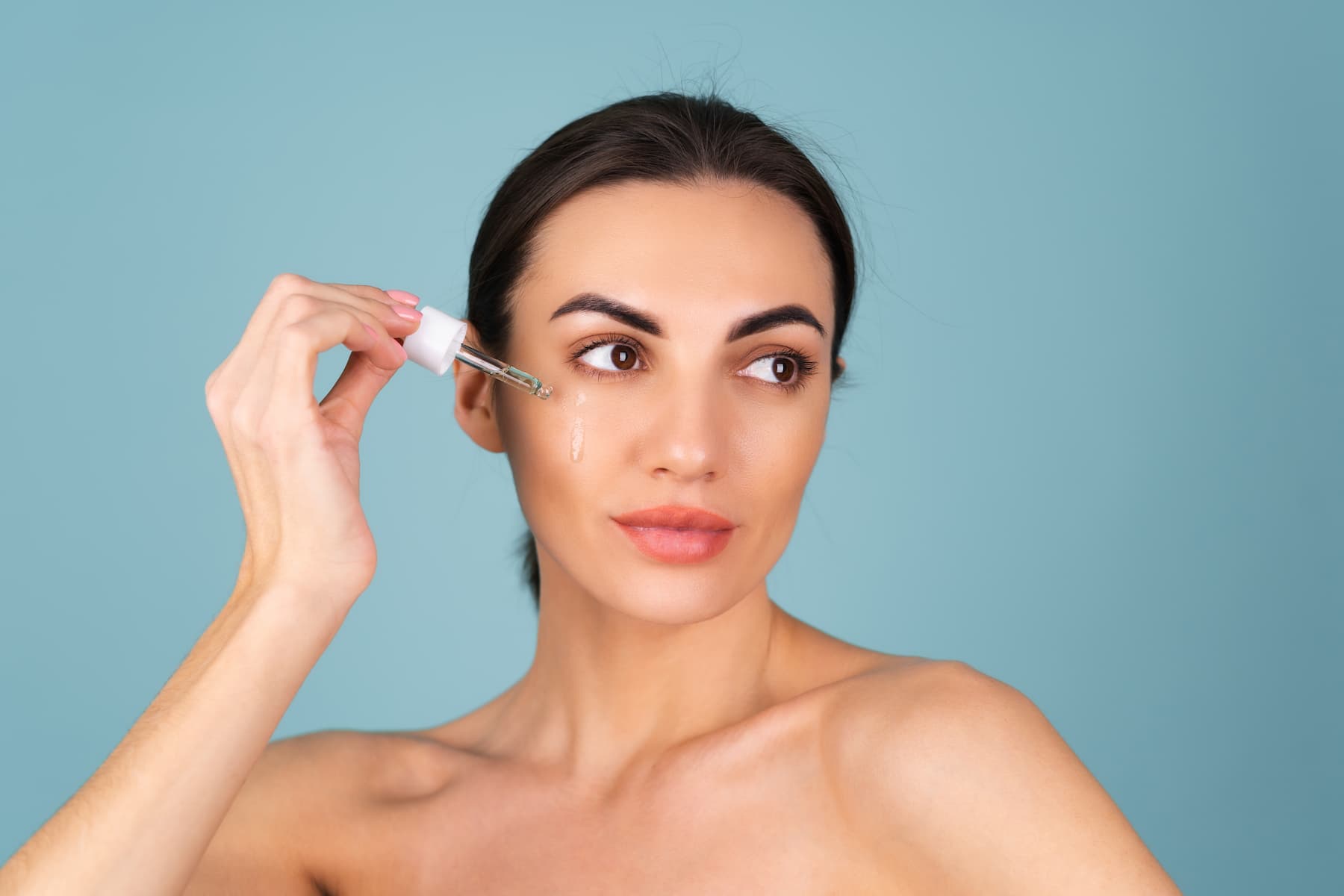
Solgar collagen with hyaluronic acid is a dietary supplement that supports skin and joint health.
